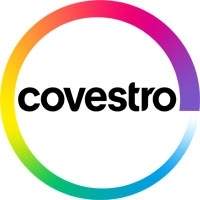The InnoTrans trade fair to be held in Berlin, Germany, on 18-21 September will be devoted to the future of transport technology.
Not only today’s growing mobility and the trend towards mobile work, but also increasingly busy roads and a rising environmental awareness are promoting the switch to trains and buses. These public transport services are not as energy-hungry as cars, trucks, and airplanes, they emit less CO2 and help prevent traffic congestion.
Regardless of whether traveling long-distance or commuting to and from work: Customers are placing ever greater demands on train interiors.
Passengers want a sturdy, innovative, and appealing design. They want comfortable seats and clean and easy-to-clean surfaces to give them a feeling of well-being. But the interior should also be functional in order to accommodate baby carriages, baggage, and bicycles, as well as to allow a seamless network. What is required are affordable and environmentally friendly solutions that also guarantee the safety of the passengers.
Covestro is a leading provider of polycarbonate solutions that combine many of these characteristics together.
At InnoTrans, Stand 506 in Hall 3.1, the company will present blends with this plastic that are not only sturdy and aesthetic, but also satisfy the high requirements of EN 45545, the European fire protection standard for railway vehicles. This way, plastics make their contribution to ensuring passenger safety.
The product Bayblend® FR411 MT, for example, is a filler-reinforced modified polycarbonate that meets the requirements of this European standard with respect to flame propagation, thermal release, and smoke density and toxicity for R1 applications according to hazard level HL2 up to a wall thickness of two millimeters.
To address the need of the railway industry for a material for higher wall thicknesses, Covestro has developed the trial product Bayblend® TP2139, which meets the fire protection requirements named above even up to a layer thickness of 3mm.
There are virtually no limits for designers when it comes to shaping and coloring. This also applies to the design of surfaces, which can have a smooth or high-gloss finish, but also a grained or textured finish. Moreover, polycarbonate is permeable to radio signals and therefore ideally suitable for the installation of antennas and sensors.
The plates can be manufactured with environmentally friendly and efficient extrusion technologies. They are long-lasting and can be recycled at the end of their useful life.
Klaus Kraner, expert for the interior furnishing of buses and trains at Covestro’s polycarbonates segment, said: “The two products are highly versatile in use for walls and seats, as well as in electrical installations.
“The components manufactured from them are lightweight and do not require painting, as the material is dyed during plate production”

